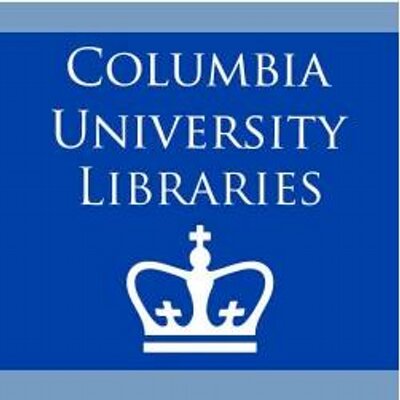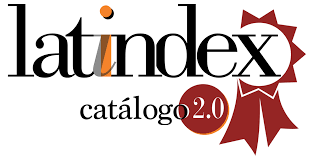Revista de Arquitectura is an open access journal. More information...
Authors retain copyright and grant to the Revista de Arquitectura the right of first publication, which will be simultaneously subject to the Creative Commons (CC) BY-NC license.
Authors will sign a non-exclusive distribution license for the published version of the article by completing (RevArq FP03 Permission to Reproduce).
Self-archiving will comply with SHERPA/RoMEO guidelines and the Green classification.
To see in detail these guidelines, please consult...
Abstract
The aim of this paper is to build a theoretical and conceptual tool to achieve a new reading of the territory different from the traditional forms as shown in the land use plans, based on the concepts of a new rurality, the emerging paradigm and game system. The material used is related to information gathered in meetings with community leaders, government agencies, mapping and written documentation. The method used is the meta-method, which is constructed with the participation of different actors that are part of the investigation. One result of this work is the construction of joint categories to start a new way of approaching territory. In addition, we reach some conclusions such as the identification of a complex reality, which cannot be analyzed in a piecemeal way, if we want to approach sustainable regional development.
Keywords

References
Batty, M. and Longley, P. (1997). The fractal city. Architectural Design, 67 (9/10).
Becker, S. (1994). Autoorganización de estructuras urbanas. En "Arch +", 121.
Beynam, L. (1978). The emergent paradigm in science. Revision Journal, 1, 2.
Bravo, R. (2012). Historia de las matemáticas. Teoría de Juegos. Recuperado de: http://www.ecpunr.com.ar/Docs/Teoria_de_Juegos%20II.pdf
Bustos. E. (2000). La metáfora: ensayos transdisciplinares. Madrid: Fondo de Cultura Económica.
Cuesta, A. (2013). Sistemas urbanos. Entre lo contextual y lo referencial. Bogotá: Ediciones Unisalle.
Dupuy, G. (1986). Systèmes, réseaux, territoires. París: Presses Ponts et Chaussées.
Eco, U. (1989). El péndulo de Foucault. Barcelona: Lumen.
Gausa, M. (1996). De la metrópolis a la metapolis. Quaderns, 213.
Gumiel, P. (1996). Reflexiones sobre las analogías geométricas e interdisciplinares entre patrones naturales. BAU, 16.
Hawking, S. (2010). El gran Diseño. Barcelona: Crítica.
Holland, J. (1998). Emergency: from chaos to order. Cambridge, Ma: Perseus Books.
Jara, M. I. (2004). Emergencia y sorpresa. Causalidad o emergencia: diálogo entre filósofos y científicos. Bogotá: Universidad de La Sabana.
Koolhaas, R. (2007). Ciudad Genérica. Barcelona, Gustavo Gili.
Kuhn, T. (1992). Las estructuras de las revoluciones científicas. Ciudad de México: Fondo de Cultura Económica.
Lincoln, Y y Guba , E. (1985). Naturalistic inquiry. Newbury Park: Sage.
Lukomski, A., Mancipe, E. (2008). El paradigma emergente y su impacto en la investigación epistemológica de las ciencias sociales. En Hallazgos Revista de Investigaciones, 10.
Lukomski, A. (2009). Hacia un nuevo paradigma de la ciencia en el tiempo de globalización. Logos, 15, 75-82.
Lukomski, A. (2010). Reflexiones acerca del concepto de paradigma. Bogotá: Universidad de La Salle.
Mandelbrot, B. (1982). Los objetos fractales. Barcelona: Tusquets.
Maturana, H. y Varela, F. (1998). De máquinas y seres vivos. Autopoiesis, la organización de lo vivo. Santiago de Chile: Editorial Universitaria.
Martínez, M. (1997). El paradigma emergente. Hacia una nueva teoría de la racionalidad científica. México: Trillas.
Martínez, M. (2006). La nueva ciencia: su desafío lógico y método. México: Trillas.
Morales, J. (2002). Adiós a la metáfora. En V.V.A.A. Otra mirada. Barcelona: Actar.
Morín, E. (1984). Ciencia con consciencia. Barcelona: Anthropos.
Morín, E. (1985). Introducción al pensamiento complejo. Barcelona: Gedisa.
Morín, E. (1986). El conocimiento del Conocimiento. Madrid: Cátedra.
Nozick, R. (1995). La naturaleza de la racionalidad. Barcelona: Paidós.
Nubiola, J. (2000). Verdad, bien y belleza. Cuadernos de Anuario Filosófico, 103.
Popper, K. R. (1994). Conjeturas y refutaciones. El desarrollo del conocimiento científico. Barcelona: Paidós.
Prigogine, I. (1988). ¿Tan solo una ilusión? Una exploración del caos al orden. Barcelona: Tusquets.
Rozo, J. (2003). Sistémica y pensamiento complejo: I Paradigmas, Sistemas y complejidad. Bogotá: Biogénesis Fondo Editorial.
Ruiz, J. (2007). Metodología de la investigación cualitativa. Deusto: Universidad de Bilbao.
Serratosa, A. (1996). El sistema viario y la política territorial. En OP, 35.
Sole, R. y Goodwin, B. (2000). Signs of Life: how complexity pervades biology. New York: Basic Books.


































